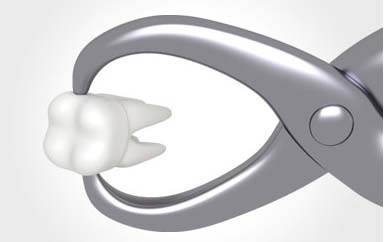General Dentistry Vancouver BC
At dental essence we provide basic and advanced general dentistry care designed to maintain and restore oral health. Our Smile Specialists are capable to provide advanced treatments include dental hygiene preventative dental care restorative dental care periodontal care and oral surgery. These general dentistry procedures allow our patients to enjoy strong healthy teeth and gums throughout their lives.
In addition to the enhanced oral health that patients of our Dental Hospital experience through proper general dental care and advanced treatments our general dentistry services serve as a strong foundation for beautiful smiles. For those seeking additional enhancements to their dental appearance we also offer a variety of in-house cosmetic dental services. It is motto to offer the the most up-to-date general dental procedures and technologies with quality general dental care
Sensitive treatment
Do you have sensitive teeth or a tooth that is sensitive to hot or cold? The discomfort associated with tooth sensitivity may occur constantly or intermittently. Intermittent tooth sensitivity and tooth pain can occur while ingesting hot or cold food or beverages or when cold
air hits the teeth. In some cases tooth sensitivity pain is mistaken for root damage.
When you have sensitive teeth activities such as brushing flossing eating and drinking can cause sharp temporary pain in your teeth. Sensitive teeth are typically the result of worn tooth enamel or exposed tooth roots. Sometimes however tooth discomfort is caused by other factors such as a cavity a cracked or chipped tooth or a side effect of a dental procedure such as bleaching. The pain usually subsides after a short period of time.
If you are concerned about sensitive teeth our specialist can identify or rule out any underlying causes of your tooth pain.
Reasons for toothy Sensitivity
Aging accounts for some tooth sensitivity. As we age enamel (the outer tooth surface) naturally wears down exposing the dentin (the initial inner tooth surface) and causing sensitivity. Tooth sensitivity also results from a variety of other factors including:Gum recession. Acidy liquids (such as soda) that cause enamel wear and dentin exposure.Tooth grinding in which case all teeth feel sensitive.Brushing teeth too hard which may cause enamel loss and dentin exposure.Dental treatment such as teeth whitening professional dental hygiene cleanings orthodontics or tooth restorations (i.e. root canals).Root nerve damage gum disease (periodontitis) or a chipped or fractured tooth.It is common to experience tooth sensitivity after a filling teeth whitening professional dental hygiene cleanings orthodontics and root canal treatment.
Treatments Available for Sensitive Teeth
Depending on the circumstances our dentist might recommend Desensitizing toothpaste. After several applications desensitizing toothpaste can help block pain associated with sensitive teeth.Fluoride. Your dentist might apply fluoride to the sensitive areas of your teeth to strengthen tooth enamel and reduce pain.Covering exposed root surfaces. If receding gums are the cause of your sensitive teeth your dentist might apply a sealant to cover the exposed tooth roots.Root canal. If your sensitive teeth cause severe pain and other treatments are not effective your dentist might recommend a root canal a procedure used to treat problems in the tooth soft core (dental pulp).Bonding agent the material used to stick tooth colored restorations to teeth can be used to seal the dentin surface and provide a barrier to the stimuli that cause sensitivity To prevent sensitive teeth from recurring your dentist might offer suggestions to help you maintain your oral health. Twice a day brush your teeth with a soft-bristled toothbrush and fluoride toothpaste. Floss daily. Avoid vigorous or harsh scrubbing highly abrasive toothpaste and excessive brushing and flossing. If you grind your teeth ask your dentist about a mouth guard. Tooth grinding (bruxism) can fracture teeth and cause sensitivity.
When to See A Doctor About Tooth Sensitivity
While you can often self-treat generalized tooth sensitivity see your dentist ifYour teeth are persistently sensitive to pressure.A single tooth is persistently sensitive which could indicate that its pulp is infected or dying.Sensitivity does not decrease after two weeks of using desensitizing toothpaste.You have dental pain that lasts more than an hour.The gums around a sensitive tooth change color.You have any obvious decay.

General Extractions
If you have a teeth that has been broken or damaged by decay our dentist will try to fix it with any of the teeth restoration methods. Sometimes though there is too much damage for the tooth to be repaired. In this case the tooth needs to be extracted. A very loose tooth also will require extraction if it can not be saved.
Reasons for teeth extraction
If you have an extra teeth that block other teeth from coming in.If baby teeth do not fall out in time to allow the permanent teeth to come inIf you are planning to undergo teeth alignment treatment some teeth may need to extract to create room for the teeth that are being moved into place.People receiving radiation to the head and neck may need to have teeth in the field of radiation extracted.

Full mouth restoration
Full Mouth Rehabilitation is to correct the imperfections in bite position and enhance the appearance of the smile. The excellent candidate would be any one with short worn teeth or those that are chipped and broken throughout the mouth. Combining the science of Neuromuscular Dentistry with the artistry of Cosmetic Dentistry Full Mouth Rehabilitation creates a smile that is functional comfortable and beautiful. Full mouth rehabilitation includes Implants porcelain veneers crowns or onlays. As an added benefit the restorations are exceptionally attractive and strong enhancing the smile beautifully.


Who is a suitable candidate for full mouth rehabilitation ?
You could be a candidate for full mouth rehabilitation if you answer yes to any of the following: TMJ problems(Temporomandibular joint syndrome)Unexplained pain or soreness around jaw jointsClicking or grating sounds in the jaw jointsLimited jaw movements or locking jawBadly attrited (worn) or carious and broken down teethUnexplained numbness in fingers and armsUnexplained congestion or stuffiness in ears
Impacted Tooth removal
If a tooth fails to emerge or emerges only partially it is considered to be impacted. The most common teeth to become impacted are the wisdom teeth (the third set of molars). They are the last teeth to emerge usually between the ages of 17 and 21.
An impacted tooth remains stuck in gum tissue or bone for various reasons. It may be that the area is just overcrowded and there is no room for the teeth to emerge. For example the jaw may be too small to fit the wisdom teeth. Teeth may also become twisted tilted or displaced as they try to emerge resulting in impacted teeth.

